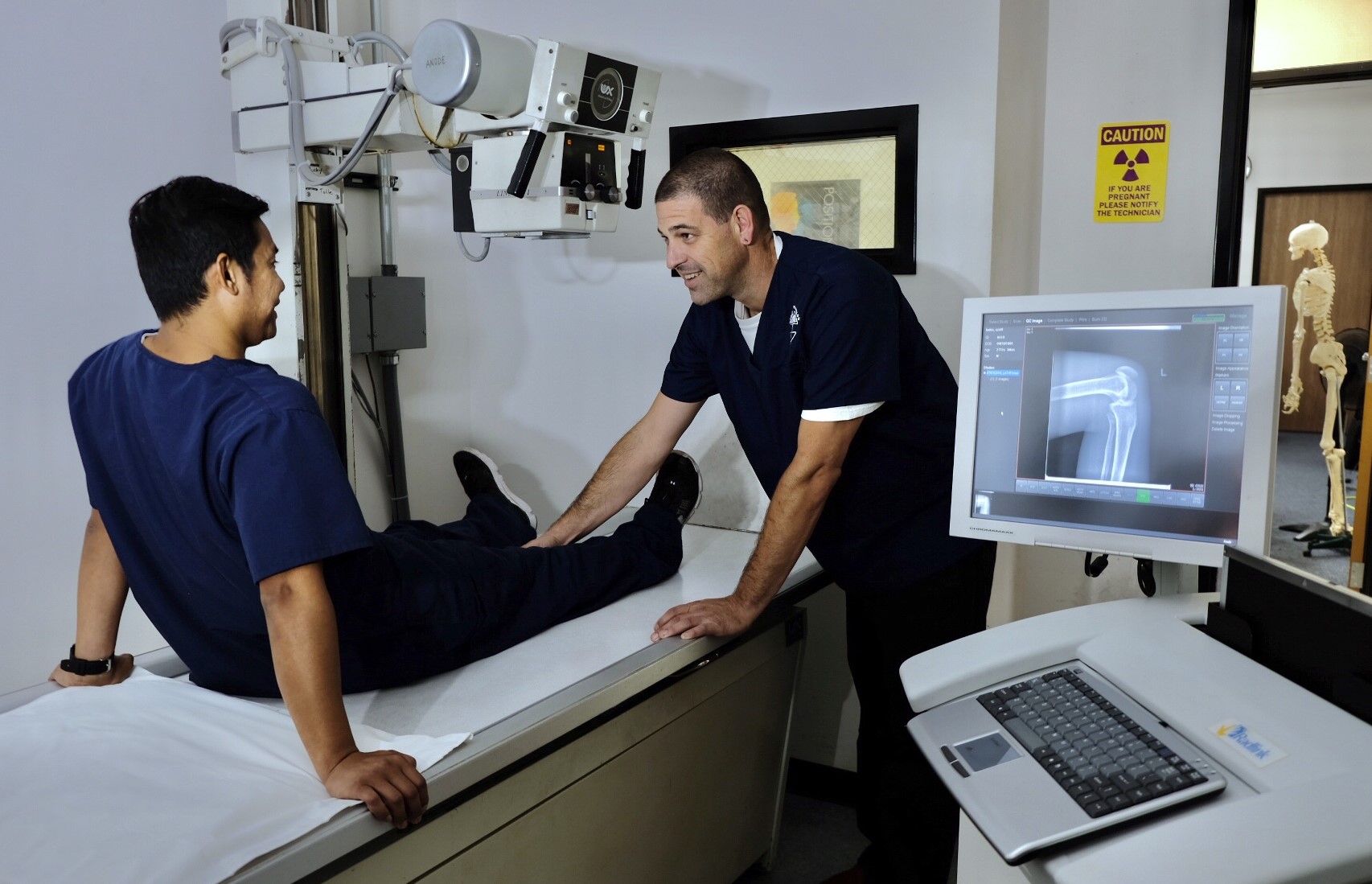
Are you fascinated by the world of medicine and technology? Do you have an innate passion for helping others and a keen eye for detail? If so, a career as an X-ray technician may be the perfect fit for you. X-ray technicians play a crucial role in the medical field, utilizing their expertise to capture detailed images of the human body for diagnostic purposes. But did you know that there is more to being an X-ray technician than meets the eye? In this article, we will delve into 19 astonishing facts about X-ray technicians that will leave you awe-inspired. From their extensive training and certifications to their vital role in patient care, these professionals are truly remarkable. So, buckle up and get ready to discover the exciting world of X-ray technicians!
Key Takeaways:
- X-ray Technicians are highly trained professionals who play a crucial role in capturing images of the human body to help doctors diagnose and treat medical conditions, ensuring quality patient care.
- X-ray Technicians work in various healthcare settings, collaborate with other professionals, and continuously update their skills, making it a rewarding career path with excellent job prospects.
X-ray Technicians play a crucial role in medical diagnosis.
X-ray Technicians, also known as Radiologic Technologists, specialize in capturing images of the internal structures of the human body using X-ray equipment. Their expertise helps physicians in diagnosing and treating various medical conditions.
X-ray Technicians undergo extensive training and education.
Being an X-ray Technician requires completing a formal education program, usually a 2-year associate’s degree. This education focuses on radiation safety, patient positioning, anatomy, and operating X-ray equipment.
X-ray Technicians must be detail-oriented.
Precision is essential in capturing X-ray images. X-ray Technicians must carefully follow protocols, position patients correctly, and ensure that the images are clear and accurate to aid in accurate diagnosis.
X-ray Technicians use protective measures to minimize radiation exposure.
Working with radiation carries risks, and X-ray Technicians are trained to use lead shields, aprons, and other protective equipment to minimize their exposure to radiation and reduce potential harm.
X-ray Technicians work in various healthcare settings.
X-ray Technicians can be found in hospitals, clinics, diagnostic imaging centers, and private practices. They collaborate with physicians, radiologists, and other healthcare professionals to provide essential imaging services.
X-ray Technicians need excellent interpersonal skills.
As X-ray Technicians interact closely with patients, they must have strong communication and interpersonal skills to ensure patient comfort, explain procedures, and address any concerns or questions.
X-ray Technicians can specialize in different imaging techniques.
While X-ray imaging is their fundamental skill, X-ray Technicians can also choose to specialize in other modalities like computed tomography (CT), magnetic resonance imaging (MRI), or mammography.
X-ray Technicians must keep up with technological advancements.
The field of medical imaging is constantly evolving, and X-ray Technicians need to stay updated with the latest advancements in equipment, techniques, and imaging software to provide high-quality and accurate diagnostic images.
X-ray Technicians must adhere to strict ethical guidelines.
Patient privacy and confidentiality are paramount in healthcare. X-ray Technicians must respect and maintain the privacy of patients and follow ethical guidelines established by professional organizations.
X-ray Technicians play a crucial role in emergency situations.
In emergency departments, X-ray Technicians are often the first to perform imaging procedures. Their quick and accurate image acquisition helps physicians make prompt decisions for patient treatment and care.
X-ray Technicians work with a variety of patients.
From infants to the elderly, X-ray Technicians work with patients of all ages and diverse medical conditions. They adapt their techniques and approaches to accommodate the unique needs of each individual.
X-ray Technicians help in the detection of fractures and injuries.
One of the primary roles of X-ray Technicians is to capture images that reveal fractures, dislocations, or other injuries in bones and joints, assisting physicians in providing appropriate treatment and care.
X-ray Technicians assist in diagnosing diseases.
Through imaging procedures, X-ray Technicians aid in diagnosing diseases such as pneumonia, heart conditions, tumors, and digestive disorders. Their work contributes to developing effective treatment plans.
X-ray Technicians ensure safety protocols are followed.
They are responsible for maintaining a safe environment by following radiation safety guidelines, properly storing and handling hazardous materials, and monitoring equipment for any malfunctions.
X-ray Technicians collaborate with other healthcare professionals.
They work closely with radiologists, physicians, and nurses to ensure accurate imaging interpretations and effective coordination of patient care.
X-ray Technicians may specialize in specific areas of radiology.
Some X-ray Technicians choose to specialize in areas like interventional radiology, nuclear medicine, or pediatric radiology, allowing them to develop expertise in their chosen field.
X-ray Technicians need to continuously engage in professional development.
To maintain their skills and stay updated with advancements in the field, X-ray Technicians participate in continuing education programs and pursue certifications offered by professional organizations.
X-ray Technicians have excellent job prospects.
The demand for X-ray Technicians is high, and the job market for this profession is expected to grow significantly in the coming years, providing ample opportunities for employment.
X-ray Technicians make a positive impact on patient care.
By providing valuable diagnostic images, X-ray Technicians contribute to the overall well-being and treatment outcomes of patients, helping healthcare providers make informed decisions.
The 19 Astonishing Facts About X-ray Technicians highlight the vital role they play in the medical field. From capturing accurate images to assisting in diagnosis and treatment, these skilled professionals ensure quality patient care and play an essential part in healthcare teams. If you are considering a career in healthcare that combines technical expertise, patient care, and continuous learning, becoming an X-ray Technician may be a rewarding path to pursue.
Conclusion
In conclusion, X-ray technicians play a crucial role in the field of healthcare. They utilize their specialized knowledge and skills to capture detailed images of the internal structures of the body, aiding in the diagnosis and treatment of various medical conditions. From their extensive training to their ability to operate advanced imaging equipment, X-ray technicians contribute significantly to patient care and medical advancements.
FAQs
1. What is the role of an X-ray technician?
An X-ray technician is responsible for operating imaging equipment to capture X-ray images of patients’ internal structures. They work hand-in-hand with radiologists and physicians to assist in the diagnosis and treatment of medical conditions.
2. What education is required to become an X-ray technician?
To become an X-ray technician, one must complete a formal education program, typically an associate’s degree in radiologic technology. Additionally, individuals must obtain the required licensure or certification, depending on the regulations of the state they wish to work in.
3. What skills are essential for an X-ray technician?
Some essential skills for an X-ray technician include attention to detail, technical proficiency in operating imaging equipment, strong communication skills, and the ability to work effectively in a fast-paced healthcare environment.
4. What are the employment prospects for X-ray technicians?
The employment prospects for X-ray technicians are projected to be favorable in the coming years. The demand for diagnostic imaging is expected to increase as the population ages, leading to a higher need for skilled X-ray technicians in hospitals, clinics, and other healthcare facilities.
5. Are there opportunities for career advancement for X-ray technicians?
Yes, there are several opportunities for career advancement for X-ray technicians. With additional education and training, they can specialize in areas such as computed tomography (CT), magnetic resonance imaging (MRI), or mammography. They can also advance into management roles or become educators in radiologic technology programs.
Intrigued by X-ray technicians' vital role in healthcare? Discover more fascinating insights about X-ray technology, medical imaging, and radiology. Uncover surprising facts about X-ray technologists and their crucial contributions. Explore the world of MRI through captivating facts that shed light on this powerful diagnostic tool. Gain a deeper understanding of radiologists' expertise and their impact on patient care. Embark on a journey of knowledge that will leave you amazed by the marvels of modern medical imaging techniques.
Was this page helpful?
Our commitment to delivering trustworthy and engaging content is at the heart of what we do. Each fact on our site is contributed by real users like you, bringing a wealth of diverse insights and information. To ensure the highest standards of accuracy and reliability, our dedicated editors meticulously review each submission. This process guarantees that the facts we share are not only fascinating but also credible. Trust in our commitment to quality and authenticity as you explore and learn with us.


